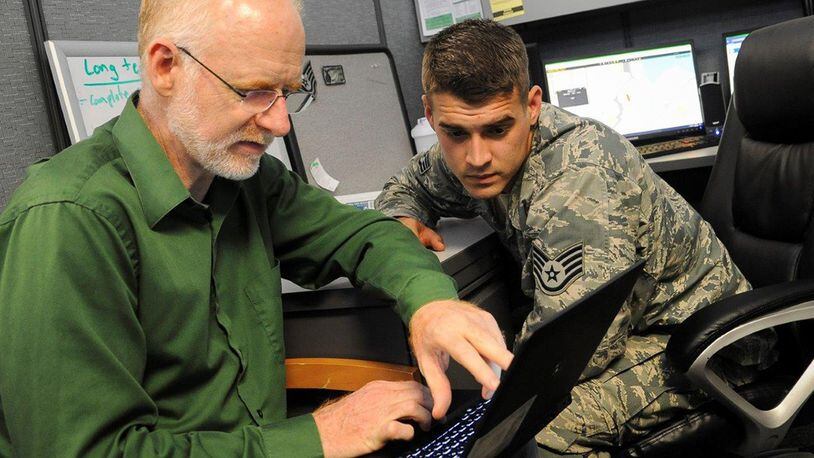“This is a big win for the Security Forces career field,” said Maj. Aaron Rittgers, 88th Security Forces Squadron commander.
He explained that normally at each location throughout the Air Force, intrusion detection and alarm systems are designed and maintained locally. Electronic Security Systems is a Security Forces mission area. Under the current management model, ESS defenders have to learn the unique attributes of a location and how the various alarms and detection systems of that location are operated and managed.
“Under the new model being implemented across the Air Force, our ESS defenders can hit the ground running when they change locations because the systems are being managed the same way across the Air Force,” Rittgers said. “The enterprise solution being implemented is truly a force multiplier in how we protect the vital assets under our care.”
When asked about the challenges unique to Wright-Patterson AFB, Rittgers explained because of the nature of the work being done, the base has the largest volume of alarm and intrusion detection systems in the Air Force.
“As with any change, we are anticipating some hiccups along the way, but our ESS defenders have been working diligently with the incoming BCF Solutions contractors to ensure that the changeover goes smoothly, and the process remains seamless to our customers,” he said.
Rittgers also praised civil engineer and communication professionals, whom he described as diligent partners in managing the ESS systems to date. He explained they did a phenomenal job supporting the mission and responding to any problems that cropped up in the systems, day or night.
Instrumental in ensuring the success of the management changeover has been Tech. Sgt. Matthew Gillett, non-commissioned officer in charge of the ESS, and his assistant, Staff Sgt. Joshua Modlin. Modlin explained the system is robust and constantly growing and that they are looking forward to working with contractors from BCF Solutions to continue to provide the best customer service and support possible.
There won’t be any immediate infrastructure changes, explained Modlin.
“We just went through an extensive infrastructure refresh, so our system is pretty robust,” he said. “The only difference that our 1,200 alarm custodians across the installation will experience is in who they call when they experience a problem that needs some sort of technical support.”
James Atkins, from the Cryptologic and Cyber Systems Division at Joint Base San Antonio-Lackland, Texas, is the contracting officer’s representative for the project. He explained that a unique aspect of the change in ESS management is the impetus on continuous system improvement.
He brought a team to Wright-Patterson AFB early in the process to help ensure a smooth implementation of the Fixed Site Sustainment-II contract. Atkins explained that the management change will give the ESS defenders a dedicated infrastructure maintenance management system to monitor and track alarm maintenance trends across the entire Air Force.
By tracking these data points the best system configurations can be determined and quickly implemented. The IMMS will also help identify problematic areas, so trending issues can be detected early and enterprise-wide solutions can be put in place at a much faster rate.
The SFS commander reiterated that due to the unique and critical research that happens throughout the installation, intrusion detection and asset security truly is a force multiplier for the entire Air Force.
“We take the mission of protecting our assets very seriously, and we’re confident that the new way of managing the ESS system will ensure our ability to accomplish that mission,” Rittgers said.
About the Author
